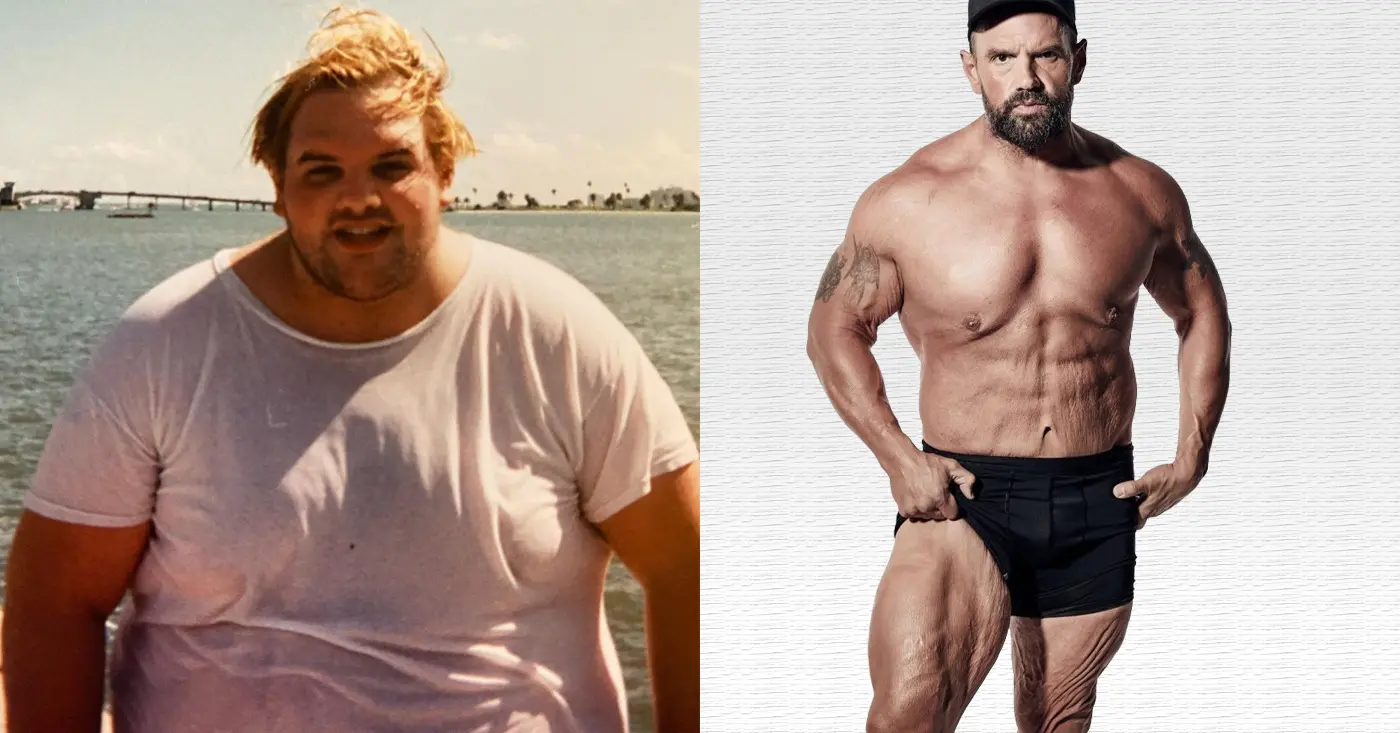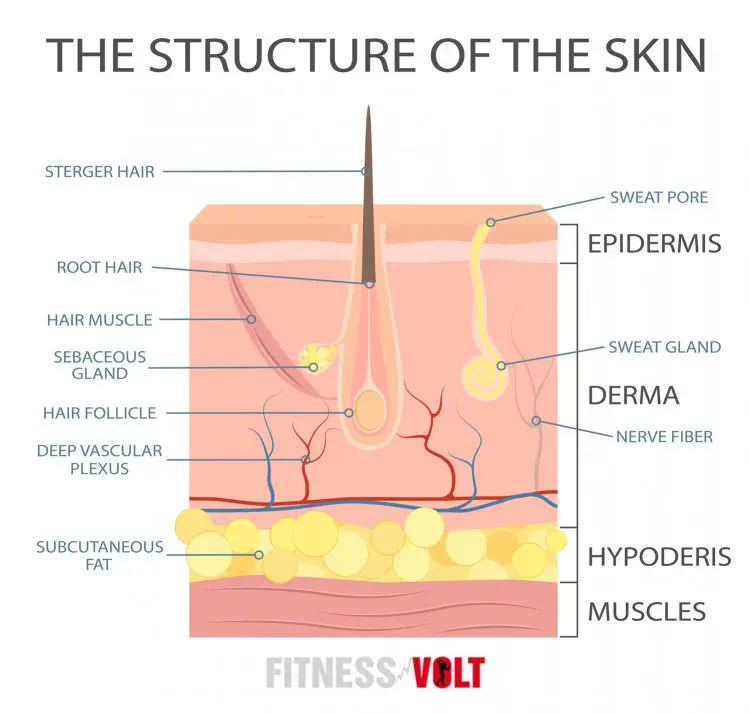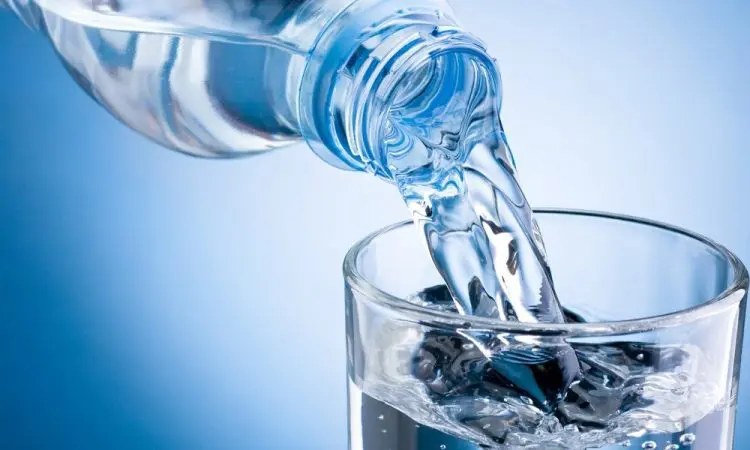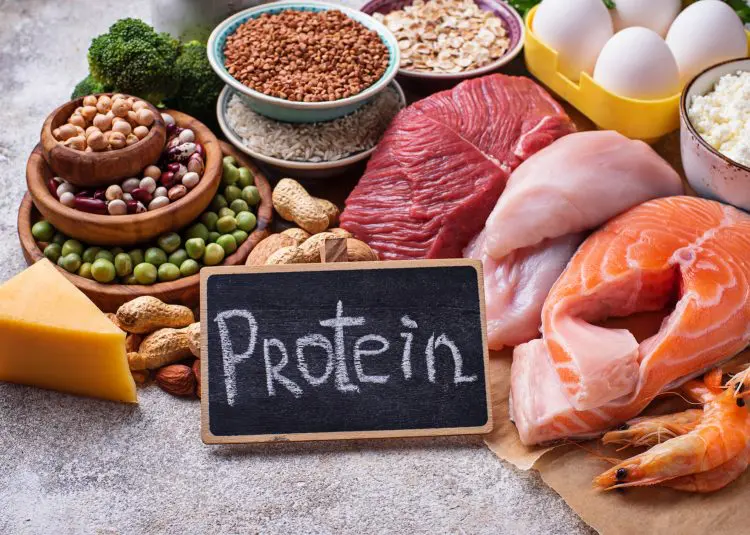Being significantly overweight can have a huge impact on how you look, feel, and your health. Carrying too much body fat can affect you in lots of different ways, including increasing your risk of (1):
- Type 2 diabetes
- High blood pressure
- Heart disease
- Stroke
- Cancer
- Sleep apnea
- Osteoarthritis and joint pain
- Fatty liver disease
- Kidney disease
- Reproductive and pregnancy problems
- Depression
Losing weight is often not easy, but the rewards can be immense and could even extend your life. You’ll certainly look and feel better.
However, weight loss is often accompanied by loose skin, affecting both your appearance and quality of life. For some people, loose skin is so distressing that they start to question whether losing weight was a good idea in the first place.

The good news is that there are several solutions for loose skin. In this article, we reveal the best and safest ways to get rid of it and also discuss a few strategies for avoiding it in the first place.
What Causes Loose Skin?
When most people think about the organs of the human body, they tend to think of things like the liver, heart, and lungs. However, your skin is an organ too. In fact, the skin is the largest organ in the human body.
The skin has several essential functions, including:
- Protection
- Temperature control
- Moisture storage
- Sensation
- Excretion of toxins
- Vitamin D production.
The skin consists of several layers and is mostly made up of proteins, including collagen and elastin. Elastin, as its name suggests, is elastic and helps keep your skin tight.
When you gain weight, your skin stretches to make room for the extra volume of fat it has to contain. This is a good thing; if the skin didn’t stretch, pregnant women would burst! However, because most overweight people remain so for many years, skin that’s been stretched gradually loses its elasticity. It’s stretched but won’t spring back to its original shape.
This is because the collagen and elastin fibers that are responsible for the elasticity of your skin become damaged.
Consequently, after losing weight, the skin remains stretched and hangs from the body. The more significant the weight loss, the more loose skin there is likely to be. Loose skin is usually associated with losing fat weight but could also be caused by atrophy or losing muscle. For example, if a bodybuilder stops training, their muscles will shrink. This could also lead to loose skin.
The Effects of Loose Skin
While losing weight is good for almost every aspect of your health and fitness, the resulting loose skin can cause physical and emotional issues, including:
Poor body image:
A lot of people view loose skin in a negative way. Loose skin can overshadow even the most impressive weight loss. Despite losing weight, some dieters are still very unhappy about how they look and are reticent about wearing clothes that reveal their loose skin.
Skin problems:
Folds of loose skin can cause skin health problems, including fungal infections, ulcers, sores, rashes, and general pain and discomfort. Dirt, sweat, and bacteria can accumulate in skin folds, leading to a range of possible skin problems.
Physical discomfort:
Large amounts of excess skin can be uncomfortable and could even interfere with regular activity and exercise. Folds of loose skin can be an impediment to movement, especially around the abdomen and hips.
Factors That Influence Skin Elasticity
Not everyone that loses weight ends up with lots of loose skin, although it is a common problem. That’s because several factors influence skin elasticity and the risk of developing overstretched skin.
The factors that affect skin elasticity include:
Age:
Skin tends to lose elasticity as we get older. That’s younger people have fewer wrinkles. Older skin tends to have less collagen than more youthful skin, making it less elastic. Because of this, if you are overweight and young, it’s better to lose weight now than leave it until you are older if you want to avoid loose skin.
Genetics:
Some people have great skin simply because they lucked out in the genetic lottery. If your parents and grandparents had more elastic skin, your chances of inheriting that trait are high.
Length of time overweight:
The longer you are overweight, the more damage your skin will sustain, and the more likely you are to have loose skin. That’s why, in pregnancy, abdominal skin stretches and then usually returns to its previous shape without forming loose skin. However, even short-term weight gain can damage the skin, resulting in stretch marks. You may be able to reduce the formation of loose skin just by making a start on your weight loss journey sooner and not putting it off for a few more years.
Amount of weight gained/lost:
The more weight you gain, the more your skin will need to stretch to accommodate the extra fat. Consequently, the more weight you lose, the more loose skin you are likely to have.
Smoking:
Smoking causes a downturn in collagen production and damages existing collagen (2). Smokers are often more wrinkled than non-smokers for this reason. Heavy, long-term smokers are more prone to loose skin than non-smokers. If you want to avoid loose skin after weight loss, you should also quit smoking.
Sun exposure:
Long-term exposure to the sun reduces collagen and elastin production, reducing elasticity. For that reason, most skin types would benefit from using a high SPF sunscreen, such as SPF 30+, to maintain skin elasticity.
How to Tighten Loose Skin
While it’s almost impossible to completely eliminate loose skin, there are several things you can do to tighten it up or reduce this problem in the first place.
Build some muscle
Increasing the size of your muscles can help fill the void left by any fat loss. This will help support the skin from within, leading to less loose skin. However, if you lose a lot of weight, such as 100lbs or more, you probably won’t be able to build the volume of muscle necessary to fill out all your loose skin, especially around your abdomen.
Despite this, and especially given the long list of benefits of regular resistance training, it makes a lot of sense to include strength training in your weight loss efforts as it can help you lose weight faster by boosting your metabolism.
Learn how to design the perfect resistance training plan in our in-depth guide.
Take a collagen supplement
Collagen supplements are becoming increasingly popular. People take them for improved joint health and better-looking skin. Many Paleo protein powders contain collagen too. Taking a collagen supplement could help make your skin more elastic so that it stretches and contracts more easily.
While this is an unproven loose skin solution, studies do suggest that it may preserve and increase the amount of collagen in the skin (3). For best results, use your collagen regularly and by following the manufacturer’s instructions. As well as collagen supplements, you can also get collagen from bone broth, which has additional nutritional benefits.
Drink more water
Chronic dehydration can affect your entire body, including the elasticity of your skin. In fact, one way to see if you are dehydrated is to pinch the skin on the back of your hand for 30 seconds and then see how quickly it snaps back into shape. Anything more than a few seconds suggests you may be dehydrated.
Studies have shown that drinking more water can increase skin elasticity and could help prevent and reduce loose skin.
The amount of water you need is up for debate, but the standard recommendation of eight eight-ounce glasses of water is an excellent place to start. Monitor how drinking more water affects your skin, and then modify your intake based on your results.
Consume adequate protein
Your skin is mostly made of protein, so it makes sense that consuming too little protein could adversely affect skin health and elasticity. The amino acids lysine and proline are especially important as they play a critical role in the production of collagen.
Adjust your protein intake to your goals, consuming a range of good quality sources of protein, including:
- Meat
- Fish
- Eggs
- Dairy
- Soybeans
- Lentils
- Hempseed
- Sprouted grains
- Protein supplements
Get more vitamin C
Most people know that vitamin C is vital for proper immune system function. However, this nutritional superstar also plays a big role in the production of collagen. Vitamin C also helps protect the skin from sun damage.
Good sources of vitamin C include:
- Citrus fruit, including oranges, lemons, and limes
- Peppers
- Strawberries
- Blackcurrants
- Broccoli
- Brussels sprouts
- Potatoes
Omega-3 fatty acids
Omega-3 fatty acids are nutritional superfoods that can help reduce inflammation, are good for your heart and brain, and may even improve the elasticity of your skin (5).
Eating oily fish is an easy and tasty way to increase your intake of omega-3 fatty acids, with salmon, mackerel, herring, and tuna being very good sources. Alternatively, you can use an omega-3 supplement/cod liver oil.
Use a skin firming cream or gel
Topical skin firming creams and gels usually contain collagen and elastin. They may also contain ingredients designed to increase blood flow in the skin, such as black pepper extract. Skin firming creams and gels can also help rehydrate and “plump up” the skin’s outer layers, making it look and feel firmer.
Unfortunately, these products only provide a short-term effect and aren’t absorbed deeply enough to have a significant impact on skin elasticity. After all, collagen and elastin are formed in the lowermost layers of the skin.
Medical treatments for loose skin
In some cases, the only effective way to get rid of loose skin is with surgery. Such procedures are called body-contouring surgery. Depending on where and how much loose skin there is to remove, this may require several surgeries over the course of a year or more. Body-contouring surgeries include:
- Tummy tuck: Removal of skin from the abdomen.
- Lower-body lift: Removal of skin from the belly, buttocks, hips, and thighs.
- Upper-body lift: Removal of skin from the breasts and back.
- Medial thigh lift: Removal of skin from the inner and outer thighs.
- Arm lift: Removal of skin from the upper arms.
Surgeries typically involve a hospital stay of 1-4 days and an at-home recovery of 2-4 weeks. There is a risk of infection with all types of surgery, as well as the potential for complications during the surgery and while recovering. In other words, while very effective, body-contouring surgeries are not 100% safe and should not be undertaken lightly.
Non-surgical treatments for loose skin
In addition to body-contouring surgery, there are a few non-surgical treatments for loose skin. With no incisions to recover from and no need for anesthesia, these treatments are much less risky, but they’re also less effective.
The two most common non-surgical treatments for loose skin are:
VelaShape – a combination of infrared light, massage, and radiofrequency treatments.
Ultrasound – the use of high-frequency sound waves that stimulate deep skin blood flow and may increase collagen production and skin elasticity.
Goodbye to Loose Skin – Wrapping Up
Don’t let the thought of loose skin put you off losing weight. While loose skin can be distressing, the positives of losing excess fat far outweigh the negatives. With less body fat, you’ll be healthier, have more energy, will be able to move better, and you’ll look better too.
Reduce the risk of loose skin by starting your weight loss journey sooner rather than later. The longer you are overweight, and the older you are when you lose that weight, the more likely you are to have loose skin.
Use the strategies outlined in this article to prevent loose skin or tighten up any that you’ve already got.
However, if you’ve lost a large amount of weight, you may still have loose skin that doesn’t respond to your own actions. If that’s the case, and your loose skin really bothers you, speak to your doctor about surgical and non-surgical treatments. It’s entirely possible that surgery is the only way to get rid of loose skin once and for all.
References:
1 – National Institute of Health: The Health Risks of Being Overweight (source)
2 – PubMed: The Molecular Basis of Tobacco smoke-induced Premature Skin Aging (source)
3 – PubMed: An Overview of The Beneficial Effects of Hydrolyzed Collagen Intake on Joint and Bone Health and On Skin Ageing (source)
4 – PubMed: Dietary Water Affects Human Skin Hydration and Biomechanics (source)
5 – PubMed: Supplementation with Eskimo Skin Care Improves Skin Elasticity in Women (source)
Tip: If you're signed in to Google, tap Follow.














